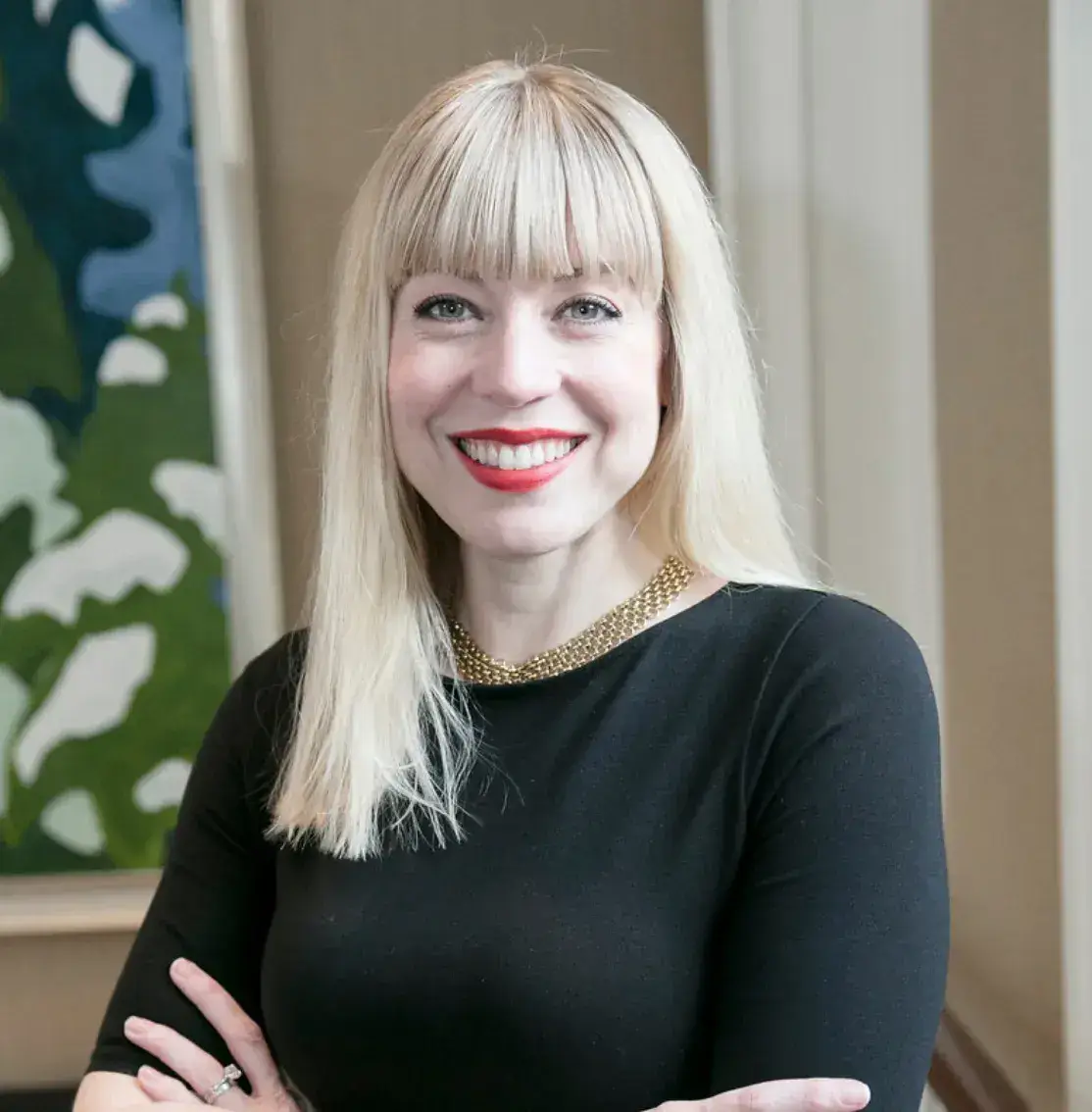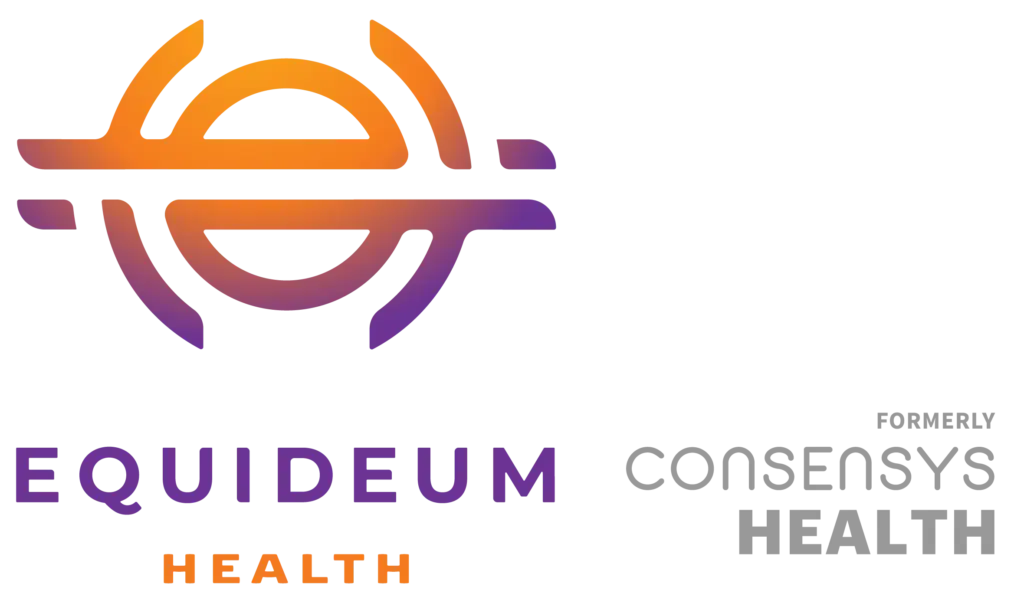


The healthcare and life sciences industry has a data silo problem.
Heather Leigh Flannery is a passionate healthtech pioneer harnessing blockchain technology to advance healthcare for patients and caregivers. “I started in tech that was fairly general in scope and then transitioned into health-specific tech almost 20 years ago,” shared Heather. She is now the Founder and CEO of Equideum Health, a spin-off from ConsenSys AG that focuses on the intersection of blockchain, web3, federated AI, and advanced privacy technology. She is an instructor for the European Tech School and for Global Blockchain Initiative’s (GBI) “Blockchain and AI in Healthcare and Life Sciences.” Heather is also an active consultant, advisor, and international keynote speaker and chairs various committees.
“I made the move to health partly because of my personal experiences as a caregiver and patient navigating health systems. The inadequacies and difficulties I encountered drove me to want to find better solutions. There had to be a better way – for patients, caregivers, providers, everyone.” Heather believes healthcare and life sciences have five barriers to mass adoption of emerging tech: identity, privacy, compliance, bioethics, and security.
At Equideum Health, Heather and her team work to create next-gen, person-centered healthcare and research networks to advance health equity and outcomes by optimizing data liquidity across enterprise and personal data estates. For this, blockchain is necessary but not sufficient, so she and her team have enabled an emerging technology convergence that they consider to be the epicenter of health industry value creation. These converging technologies include decentralized apps (dApps), tokenization, smart contracts, blockchain networks (private, public, and hybrid), confidential computing, zero-knowledge cryptography, data federation, and decentralized AI.
She remarks: “Although this paradigm shift will benefit everyone, for the first time, we can focus on vulnerable populations that are underrepresented in the data of healthcare delivery systems. Since it’s the data that shapes health economies, we aim to bring equitable improvements in global health data equity to emerging health economies.”
Thinking through technology Washington, DC, USA Integrating web3 and the Metaverse into healthcare and life sciences introduces new possibilities for patient engagement, empowerment, and shared decision-making. She shares: “Although there is a common association of metaverse applications with gaming, that is only the tip of the Metaverse iceberg. The applications we are considering are, instead, ways to address blockers around interoperability, the portability of digital identities, and personal data estates, especially for in silico research. In the Metaverse, digital assets will empower individuals to move across metaverse realms while maintaining the value they have created in their personal digital identity twins.”
Within the healthcare and life sciences sector, silos of exponentially growing quantities of data exist. According to Heather, the application of web3 and the Metaverse and associated technologies has the potential to solve the industry’s greatest challenge: data is currently too excessively disparate and fragmented for any meaningful use. Heather has deduced that healthcare transformation is possible only through the lens of data architectures. “I had an a-ha moment, recognizing that there were ways to use blockchain technology and personal empowerment through web3 to address our industry’s chronic problems. Once I saw that, I couldn’t unsee it. And from that point forward, it has continuously evolved toward web3.”
The opportunities that web3 and the Metaverse present make for an empowered society of the future — today. Heather explains that the application and creation of self-sovereign digital twins and the use of self-sovereign AI will be incredibly powerful. She believes that within five years, this technology will critically improve how new medicines are developed, particularly within the areas of creation and validation of new public health and epidemiological interventions. Digital twins will be the forward-face of personal data estates that includes health information and health-relevant information, such as social determinants data (like geographic location, social media data, and more).
She explains: “We are closing in on bioethical privacy and compliance issues. Once bioethical privacy is achieved, the ability to perform in silico research will be ‘step three,’ and in silico studies will become standard procedure scientifically. Currently, research sponsors are struggling because of access to quality data. In silico research provides that data through simulations that require the Metaverse. They are complex and agent-based simulations that depend on individual digital twins and more — entire communities, families, and health economies. This will be an extraordinary capability we’ll have in just a few years, and those in the field are building that right now.
Unfortunately, the positive impacts of previous technological revolutions have not equitably impacted all societies. “Some portions of societies have benefited while others have been left behind. It was inadvertent,” says Heather. “But this is what happens when we don’t consider all the populations that are affected. Generally speaking, technology is funded by the investor class, which thinks in terms of customers, not stakeholders. Those customers are economic buyers, and their goal is to achieve profitable transactions between economic buyers and sellers. The problem persists because of this mental model and the reality that the most vulnerable populations are not economic buyers.”
The strategy she embraces is to empower the person, individual, family and community to be economic stakeholders in this new technological revolution. She believes this inclusion and participation in the economy is necessary; otherwise, society will recreate the same frameworks that have resulted in the digital divide. She says that this is a divide that is so wide that vast proportions of the world don’t even have clean water. “It isn’t just a divide regarding access to health resources. This divide encompasses financial and health literacy and a reason to trust institutions that have failed people historically. Those things require new cultural structures, business models, and intelligent and forward-looking policy environments.”
Discussing the future, Heather is most excited about the opportunities to help advance new sustainable business models and create economic structures and patterns at a macrosystem level. She says introducing this new family of technologies creates the potential for fundamental structural change. Still, one must have a vision of how to use these new capabilities to approach things in a genuinely different way. Heather believes that blockchain and associated technologies give us the opportunity to invent, validate, and refine new business models that will be at the forefront. These models will include entire populations under different economic structures.
Heather says: “This is all just incredibly inspiring to me. We offer something sustainable for humanity with the ability to generate profit and healthy returns for investors. Through these new models, we can address the needs of all stakeholder groups. Knowing that, I jump out of bed every morning excited to tackle the challenges.”
Website: equideum.health
